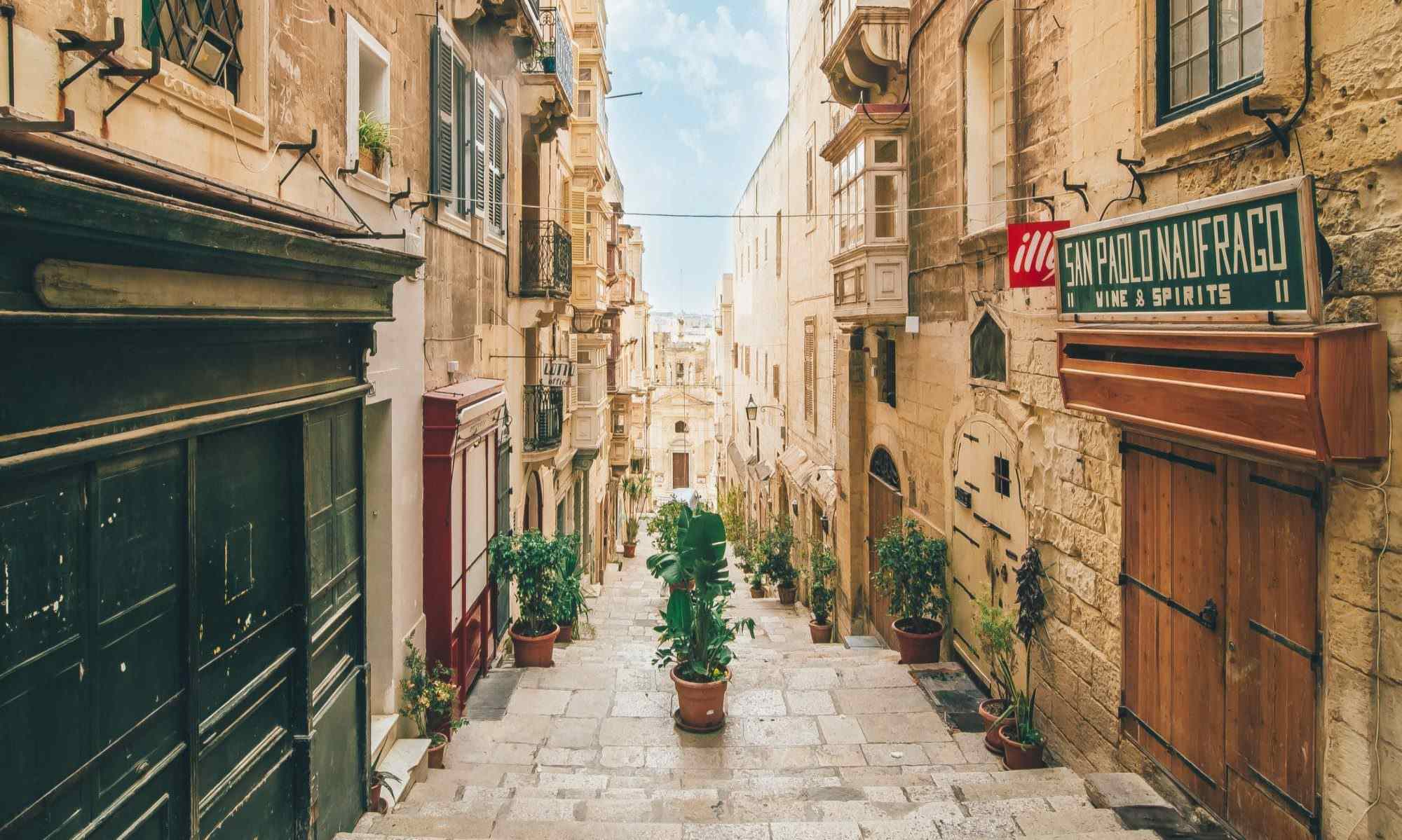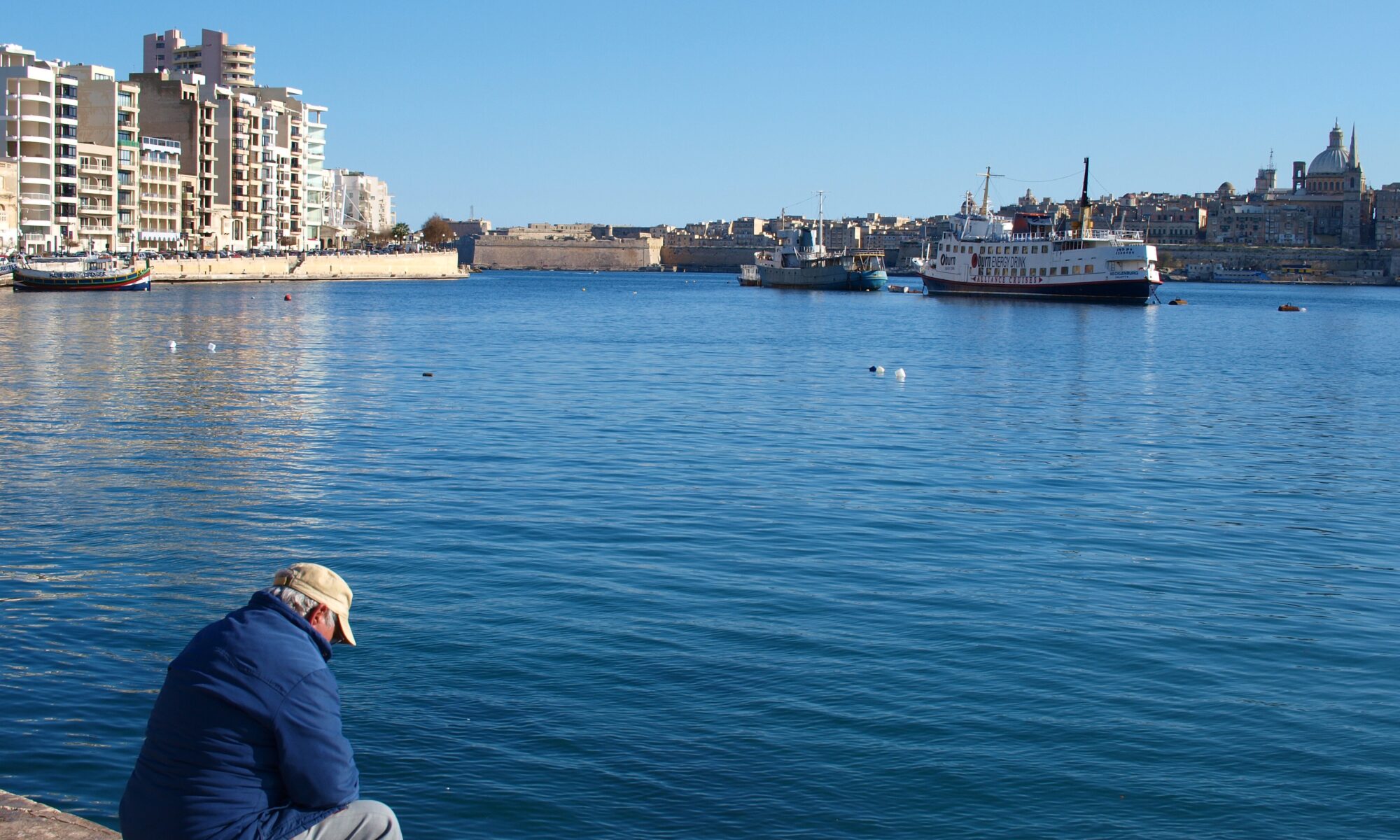Comprised of a small group of five islands located just 100 miles south of Sicily, Malta is a common spot for vacations due to its picturesque towns and landscapes. Lately, the archipelago is also becoming increasingly popular as a destination for retirement.
However, retiring in another country is a major decision. Before you make the choice to retire in Malta, there’s a lot you should learn about the country and retiring to it.
In this guide, we’ll do a breakdown of everything you need to know about retirement in Malta and ensure that you have everything that you need in order to happily live out your golden years in style and comfort.
Table of Contents
How To Retire in Malta: Four Options
Generally speaking, to retire in Malta you’ll be required to obtain residency. The four residency pathways that people usually follow, when also retiring to the archipelago, include:
- the Global Residence Program,
- the Maltese Retirement Program,
- the Citizenship by Investment Program and
- the Permanent Residence Visa.
1. The Global Residency Program
If you’re looking to receive a specialised tax status while you’re legally residing in Malta, this is a good retirement option. The Global Residency Program allows for travel within the EU and the right to settle and stay indefinitely in Malta.
However, this program is not for everyone. In order to qualify, applicants need to fulfil stringent monetary requirements. Nonetheless, it is still an option to consider for non-EU expats who wish to live out their golden years in the archipelago.
For retirees who are from the EU, EEA or are Swiss nationals, Malta’s Residence Program is the alternative to this option.
Can I Retire to Malta from the UK Under This Program?
Yes. You must be a third-country national or non-Maltese to utilise this retirement option.
Other requirements include:
- Your income must be stable, with proof of pension or income.
- International healthcare must be obtained.
- You must be in good health, with a certified health record provided by a reputable medical professional.
- You must be fluent in English or Maltese.
- You cannot remain in any other jurisdiction for longer than 183 days each year.
- You must invest in property valued to at least €275,000 (€220,000 in certain areas)
Or
- Establish a rental contract for at least €9,600 (€8,750 in certain areas)
2. Retirement Visa through the Maltese Retirement Program
The Maltese Retirement Program (MRP) provides a retirement option for European Union nationals, European Economic Area nationals or Swiss Nationals who are not employed — instead, relying on a pension for their income.
Those who aren’t set on fully retiring should be wary of applying for this program, since they will not be allowed to work within the archipelago, except in charitable or educational organisations.
There are numerous requirements for the Maltese Retirement Program, some of which include:
- Living within the listed EU, EEA or Swiss areas.
- Not residing in another country more than 183 days out of the year. Your residency in Malta must be for at least 90 days per year, for at least five years.
- Being a property owner or renter in the Malta area. If you are purchasing a property, it has to cost at least €275K. If you choose to rent, the rental value must be at least €9600.
- Receiving a pension that accounts for at least 75% of your annual taxable income.
- Possessing both valid travel documents and adequate health insurance.
Under the MRP, retirees must pay 15% of their foreign income to Malta.
3. Obtaining Maltese Citizenship by Malta’s Citizenship by Investment Program
The Malta Citizenship by Naturalization for Exceptional Services (MEIN) allows investors to become Maltese citizens, as long as a specific investment has been made.
This is a good retirement option for non-EU expats who are well off and prepared to invest a large sum as part of their retirement plans.
The process of receiving Maltese citizenship by investment can generally be completed in just under a year. As newly minted EU citizens, beneficiaries will be able to freely travel the EU as they wish, as well as move to other EU nations if they so choose.
Business savvy individuals who take advantage of this opportunity will also enjoy certain tax benefits. They will not be taxed on any of the foreign capital gains or foreign income that they secure for themselves.
The requirements for Malta’s Citizenship Investment Program include:
- Buying a home worth at least €350,000 or,
- Renting a home worth at least €16,000 per year
- Investing at least €150,000 in Government Bonds and Securities
- Have clean criminal record
- Be in good health
Investing large sums of money is no easy feat, and it pays to be informed. If you want to know more, we have a full guide on citizenship by investment in Malta.
4. Obtaining a Visa in Malta during Retirement
There are a few different ways that you can stay in Malta longer than you would if you were just vacationing. The best visa option that you have available to you is the Maltese permanent residence permit, which can be used by anyone who wants to live in the country, but does not plan on working there.
Americans that want to retire to the archipelago typically don’t need to work, so this is a good option if you’re going to be receiving retirement income but don’t need to work in order to support yourself.
Of course, there are a few different requirements that you must meet if you hope to qualify for a Maltese permanent residence permit:
- You must meet certain financial requirements that demonstrate self-sufficiency.
- You must have a clean criminal record.
- There is an interview process that you will need to go through prior to being approved.
After You Have Received Your Permanent Residence
Once you have been approved for permanent residence in Malta, there are some other requirements that you’ll need to meet. For starters, you are required to open a Maltese bank account in the country.
Furthermore, you’ll have to purchase a home worth a minimum of €114,000, or an apartment worth at least €68,000. If buying real estate is not in your retirement plan, there’s also the option of renting as long as you are paying a minimum of €4,000 in rent each year.

Where to Retire in Malta
Currently, there are a few locations within Malta that most expats are choosing for retirement. Many of these locations also welcome tourists to the area, which is something you may or may not prefer. The tourist population tends to be higher in the summer months, with everything quieting down when the temperatures are a bit cooler.
St. Julian’s, Sliema, Qawra, Mellieha, St. Paul’s Bay and Paceville are just some of the places you should look into if you’re trying to figure out where you may want to relocate to.
You may want to consider vacationing in Malta for a bit in order to do your research. Think about staying in a few different locations over the course of your visit, and try to spend your time as close to how you normally would each day in order to get a good idea of what you can expect.
Make a list of the pros and cons of each location, including shopping locations, restaurants, bars, movie theatres, beaches, marinas, community events, and take your time in figuring out which place is best for you.
Considerations for Retiring in Malta
While the islands are a wonderful place to spend your retirement years in, they’re still not for everyone. In order to enjoy your golden years to the fullest, there are some factors you should take into account.
The Retirement Age in Malta
Malta’s Contributory Retirement Pension is given to those of retirement age. This varies depending on the year an individual was born. For anyone born on or after January 1, 1962, the retirement age is 65 years old. However, there are possibilities to opt for an early pension at 61.
In light of this, many Maltese retire between the ages of 61 and 65 years old.
Expats, however, are another story. While some head to Malta after reaching the age of retirement in their home countries, others may relocate earlier to make the most of their savings and enjoy their new, relaxed island life.
Costs
Aside from the costs that come with moving from one country to another during your retirement years, there is the cost of living that you need to take into consideration. There will inevitably be places that are far more affordable than others, and it’s all about understanding what you can comfortably spend.
The overall cost of living in the United States is a bit more affordable, but Americans retiring in Malta can expect rent to be as much as 24% lower there. Retirees often move to the area of Sliema, which is very beautiful and quite affordable.
Housing Opportunities
The process of purchasing a property in Malta is different than you may be used to in the United States or the UK. Non-EU citizens are required to obtain a special Acquisition of Immovable Property Permit that is obtained by the Ministry of Finance in Malta.
The process of applying and receiving approval for the permit can take about three months, so you’ll need to plan accordingly. You’ll need to enlist the help of a notary who will apply on your behalf.
Once you have received your AIP permit, you have the right to purchase one residential property for yourself and your family.
Retirement Homes in Malta
If purchasing and taking care of a home sounds like too much work for you, a retirement home might be a better option. Malta offers a wide range of elderly care facilities, both private and public, that are sure to meet your needs.
Malta’s Department of Active Ageing and Community Care (AACC) also offers support services, including food delivery, home care and handyman services and state-managed retirement homes.
Security and Safety
As a senior, it’s realistic and practical for you to think about security. Luckily, you won’t have to look over your shoulder while living in the isles. In fact, Malta is an incredibly safe country, with very low crime rates and frequent patrolling. Even areas by the water are very safe.
You don’t have to take our word for it! According to the 2019 Global Wealth Migration Review, Malta was ranked as the second safest country in the world for women, and the safest in Europe.
Paying Taxes
As a foreigner, your situation regarding taxes is a bit different than a local would experience. You are subject to paying taxes when you have one of two types of income coming in. The first is capital gains, followed by the income that you earn in Malta (if applicable).
If you’ve decided to get a job during your retirement, you will be taxed on that income. Similarly, if you are selling a property in Malta, you’ll be taxed on that profit as well.
Taxation for U.S Citizens
If you are an American retiring in Malta, you still have to file taxes within the U.S. annually. During this process, you are required to report any foreign bank accounts that you have had within the past year.
Don’t forget, you’re required to report your Maltese bank account. Luckily, if you’ve earned money while living in Malta, you may be able to reduce the amount of income that you can be taxed on.
There is a foreign tax credit, foreign housing exclusion and other exemptions. Since taxes are relatively complicated anywhere, it may be a good idea to hire a professional. At least for your first couple of years living in Malta.
Pensions
Expats who were receiving a pension or social security payment in their home country might be able to continue doing so while residing in Malta.
In particular, retirees from the following countries should be able to rely on their pensions:
- United Kingdom
- Australia
- New Zealand
- Canada
For more information visit the UK’s guidance pensions within the EU or investigate Malta’s social security agreements.
Healthcare
There are a couple of healthcare options available once you’ve settled into your new Maltese retirement life. There is an opportunity that is publicly funded, as well as other private options. Which option you choose will really depend on the type of healthcare coverage that you feel you need and are eligible for.
Those dealing with a chronic health issue or taking maintenance medication should make sure that they’ll receive adequate coverage.
If you’re working with a limited budget, we recommend that you opt for publicly funded coverage. You’ll save a lot of money, and you can use those savings to invest in better coverage a few years down the line, if necessary.
You may be questioning the quality of care through the public system. Don’t worry though, Malta’s healthcare is ranked the fifth-best in the world in a 2000 World Health Organization Study. In fact, emergency care is available even if you don’t have coverage.
Unfortunately, not all expats will be able to enjoy free health care, since some residency permits require beneficiaries to purchase private health insurance.
When it comes to price, private healthcare can cost you anywhere from €40 to €80 per month, depending on the coverage. There are usually a few things that you have to pay for out of pocket, including specialist appointments, blood work and radiology.

Additional Benefits of Retiring in Malta
It’s no coincidence Malta has become one of the most preferred destinations in the world when it comes to retirement. There is so much to do in the way of entertainment, dining, nightlife, etc. The cost of living is attractive and there are many other expats that you can connect with while you’re there to form a sense of community.
While tax incentives really seal the deal from a financial point of view, there are other benefits that come along with retirement in Malta.
Great Weather
Throughout the year, Malta is very much known for its brilliant sunshine. There are very few times of the year when the weather turns nasty. June through October tends to be the hottest time of the year in Malta, with temperatures peaking anywhere from 25°C to the 30°C.
The winter months are from December through March, and temperatures can dip to around 10°C to 15°C. Even during the colder months, the weather is mild and perfect for outdoor activities.
Entertainment
Malta is not just a lovely place to live, but it is also a popular vacation location. There are people from all over the world (including celebrities) that flock to this area during the course of the year.
Visiting small towns, swimming in the Mediterranean, and island hopping are all favourites of both locals and vacationers. With so much rich history to learn about, you’ll be very busy during your retirement years as you explore your new home.
Thriving Expat Community
By far, the greatest advantage for those choosing Malta as the place they retire is the thriving expat community. As a multicultural hub for people of all ages, Malta attracts people from all around the world.
Unlike other retirement destinations, Malta provides a sense of community and belonging. There are huge expat forums and groups online for you to meet like-minded individuals, make friends and form close bonds while enjoying your retirement.
Make Your Dream of Retiring in Malta a Reality
Moving to Malta is a major undertaking, but it can be well worth it to spend your golden years in a Mediterranean paradise. Don’t discount a move like this just because it seems like there’s a lot to take into consideration. Just make sure that you’re taking your time to think everything through before you start packing.
Whether you’re concerned about the cost of living, how you will secure healthcare during retirement or what kind of taxes you should expect to pay, research is the best way to learn about retiring to another location.
If you’re still unsure whether Malta fits in with your retirement plans, contact me today. I’ll be happy to talk you through the entire process, and help you determine whether retiring in Malta is right for you.


